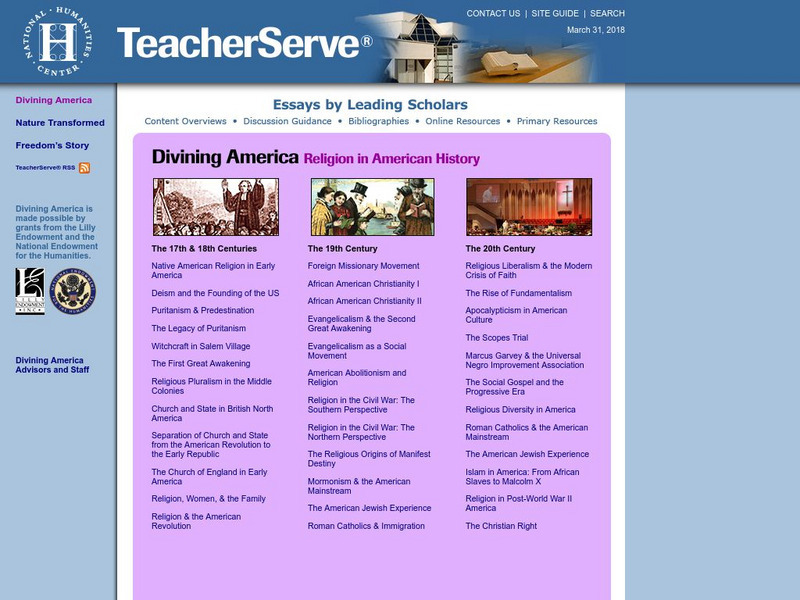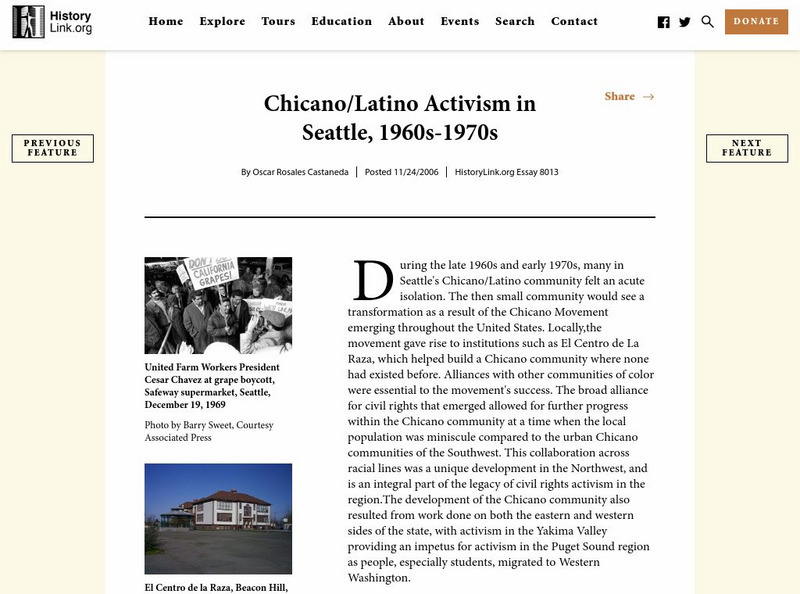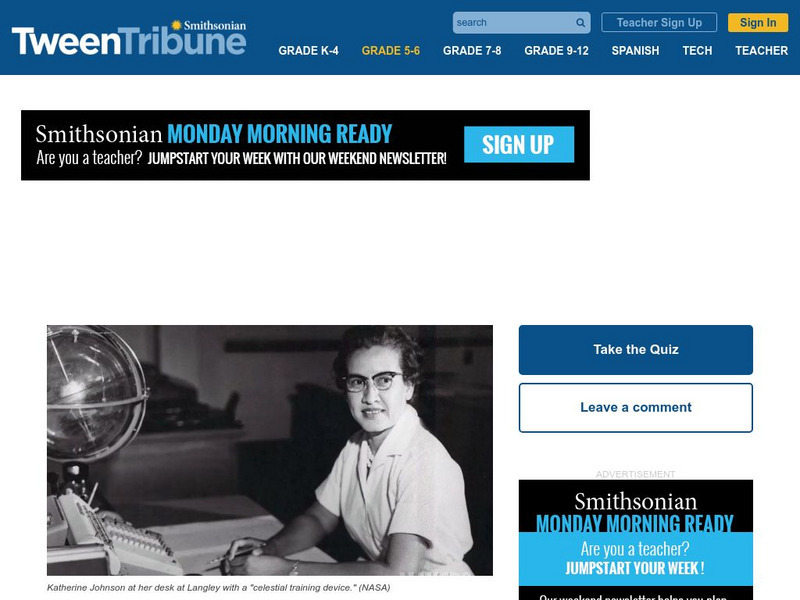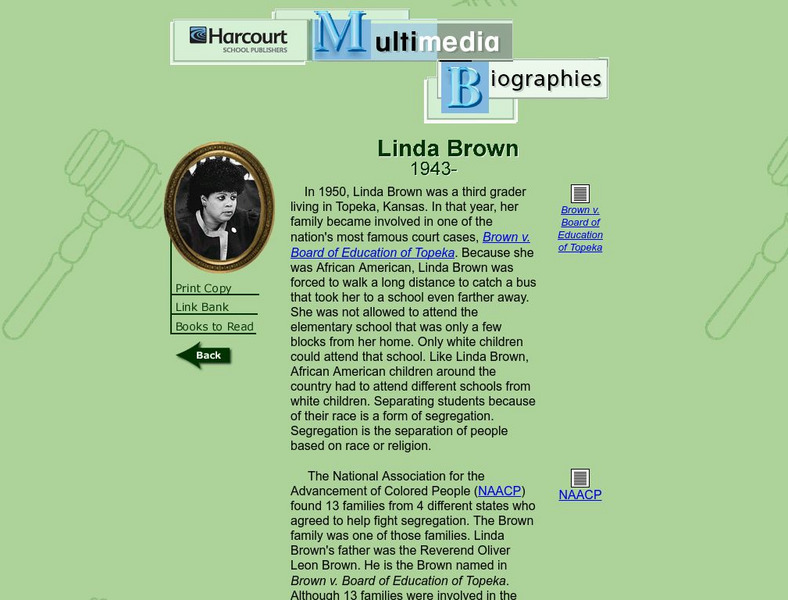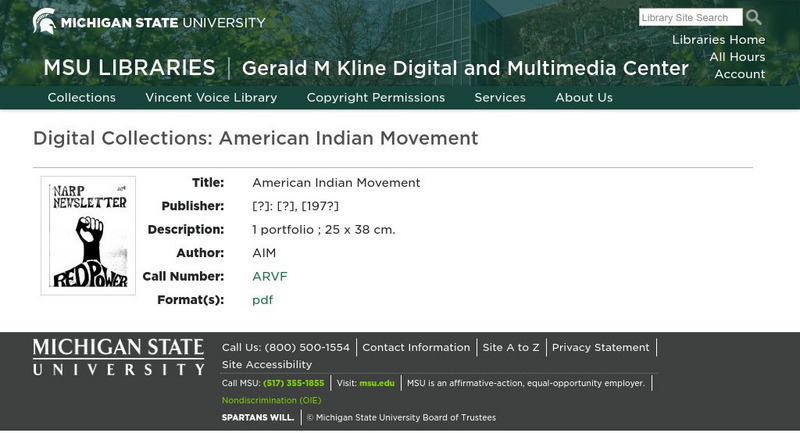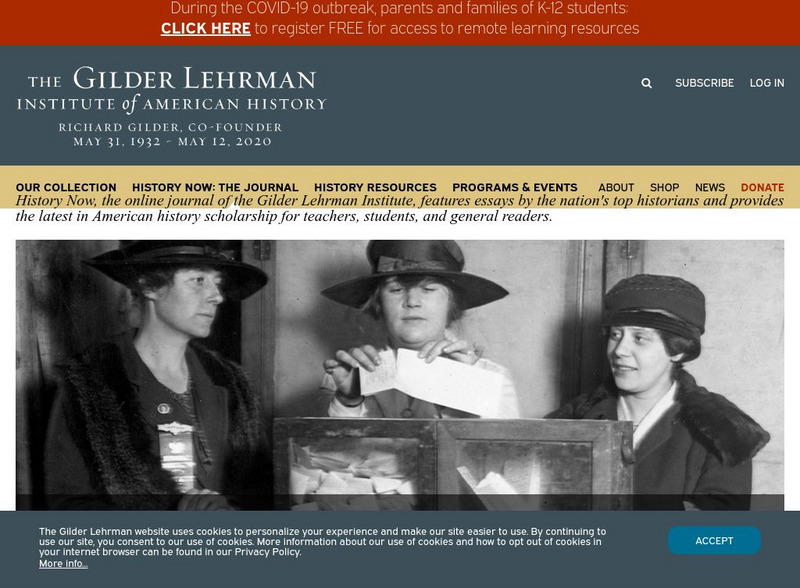Hi, what do you want to do?
Siteseen
Siteseen: American Historama: Niagara Movement
Learn about the Niagara Movement, a black civil rights organization formed in 1905 formed by W. E. B. Du Bois and William Monroe Trotter.
Siteseen
Siteseen: American Historama: Selma March
The Selma Freedom March from Selma to Montgomery, Alabama took place in March 1965 as part of the voting rights movement.
Khan Academy
Khan Academy: "Massive Resistance" and the Little Rock Nine
Read about the famous civil rights protest in Little Rock, Kansas in 1957 when nine African American students attempted to enter Central High School on the first day of school. Despite the presence of federal troops at the school for the...
National Humanities Center
National Humanities Center: Teacher Serve: Divining America: Religion in American History
A collection of scholarly essays consisting of instructional guides accompanied by commentary. Designed to help teachers of American history bring students to a greater understanding of the role religion has played in the development of...
History Link
History Link: Chicano/latino Activism in Seattle, 1960s 1970s
An article about the Chicano Movement in Washington state, and Seattle in particular at the height of the Civil Rights movement. Read about the formation of the Brown Berets and their place in the movement.
Independence Hall Association
U.s. History: Martin Luther King, Jr.
A brief biography of civil rights hero, Martin Luther King, Jr. This article touches on his early life, but focuses on his actions as a leader of nonviolent change to bring equality to African Americans. Find a speech given by Robert...
Smithsonian Institution
Smithsonian Tween Tribune: The True Story of "Hidden Figures"
"Hidden Figures" was a blockbuster movie and book about African-American women working for NASA beginning after WWII. These women not only made great strides for the space program but also advanced the civil rights movement. Learn more...
Stanford University
King Institute Resources: Freedom Summer (1964)
Discussion of one of the last major interracial civil rights efforts of the 1960s to register as many African-American voters as possible in Mississippi.
National Humanities Center
National Humanities Center: Toolbox Library: African Americans, the Gilded and the Gritty: 1870 1912
A speech by Mary Church Terrell, a letter by Booker T. Washington, a letter by W.E.B. DuBois, and the Niagara Movement's Declaration of Principles describe African American civil rights strategies in the early-twentieth century.
Houghton Mifflin Harcourt
Harcourt: Biographies: Linda Brown 1943
Read a brief summary of the life story of Linda Brown whose civil rights experiences were the basis for the famous historical case of Brown v. Board of Education of Topeka.
Scholastic
Scholastic News: Kids Who Fought for Change
Read a first-hand account of a child of the civil rights movement, and learn about the struggles of fighting for change.
Khan Academy
Khan Academy: African Americans, Women, and the Gi Bill
Although the GI Bill was intended to provide benefits to all WWII veterans, African Americans and women who had served had difficulties taking advantage of them due to discriminatory practices at the state and local levels.
Stanford University
Stanford University: Lesson Plan on Martin Luther King, Jr. & Malcolm X
A comprehensive four part lesson plan exploring how the ideas of the two great African American leaders were similar and different both in their ideologies and their visions.
Michigan State University
Michigan State University: Msu Libraries: Digital Collections: American Indian Movement
A document on native people's movements can be downloaded here. It contains a National Alliance for Red Power (NARP) newsletter from June/July 1969, that was published in Vancouver, British Columbia. This is followed by materials from...
US Department of State
U.s. Department of State: Decades of Change: 1960 1980
Summary of the rise of cultural and ethnic pluralism that took place in America between 1960 -1980 causing major social change. Included were such movements as civil rights, women, Latino, Native-American, counterculture,...
Other
National Urban League Home Page
The homepage of the National Urban League, whose mission "is to enable African Americans to secure economic self-reliance, parity and power and civil rights."
Ohio State University
Opper Project: Using Editorial Cartoons to Teach History (Lesson Plans)
Two dozen lessons that focus on using political cartoons as primary source resources for teaching American history. Lessons cover a range of topics in U.S. history from the Civil War era forward and are linked to Ohio content standards.
Ohio State University
Opper Project: Using Editorial Cartoons to Teach History (Lesson Plans)
Two dozen lessons that focus on using political cartoons as primary source resources for teaching American history. Lessons cover a range of topics in U.S. history from the Civil War era forward and are linked to Ohio content standards.
Other
Learning for Justice: Brown v. Board: An American Legacy
An article celebrating the 50th anniversary of the famous Brown v. Board Supreme Court decision. Features background information, a timeline of integration of schools, interviews, and links to many other activities and resources covering...
Gilder Lehrman Institute of American History
Gilder Lehrman Institute: History Now: Martin Luther King, Jr.'s Legacy
[Free Registration/Login Required] This resource provides information about Martin Luther King, Jr.'s impact on American history. In addition, there are links to related topics.
Country Studies US
Country Studies: The Latino Movement
Latinos in the US, like African Americans, were oftentimes discriminated against and forgotten about. Noticing African American activist techniques for recognition, many Latinos in the US began to organize and pressure the government for...
Black Past
Black Past: Lulu B. White (1900 1957)
A biography of Lulu Belle Madison White. She was a prominent civil rights advocate with the NAACP in Texas.
Siteseen
Siteseen: American Historama: Mlk Assassination
Features detailed facts and a summary of the assassination of Civil Rights activist Martin Luther King, Jr. on April 4, 1968, by James Earl Ray.
Digital History
Digital History: Freedom Now
When four African American North Carolina Agricultural and Technical College students refused to leave the lunch-counter at the F.W. Woolworth store in Greensboro they started the first non-violent, "sit-in" movement. Although the...








